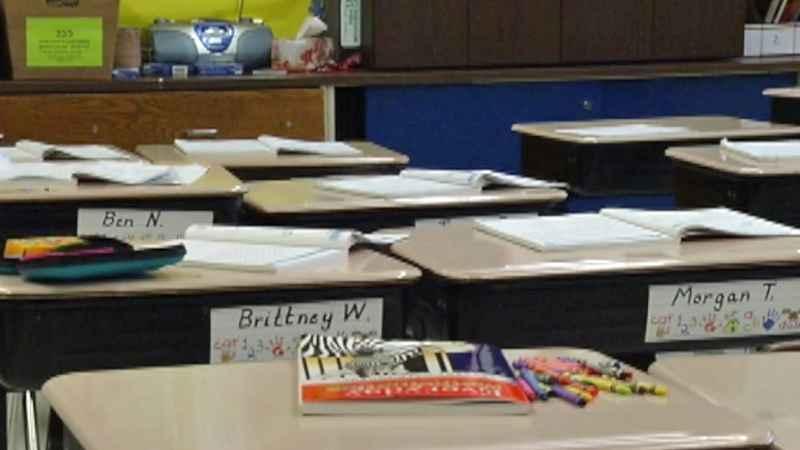Return to remote learning is taking a toll on students and families, mental health experts say
[anvplayer video=”5083140″ station=”998122″]
Constantly changing COVID-19 updates, mask policies, business restrictions and remote learning are all adding up to an omicron overload, experts say.
"I think young people are really struggling right now. I think there’s a lot of whiplash, right?” says Dr. Sara Polley, the Youth Continuum Director for the Hazelden Betty Ford Foundation. “There was a lot of hope coming into the New Year that potentially COVID would be behind us, and then as we’ve seen the spike in cases, I think families have a lot of stress. Kids are really stressed out.”
Charlie Puttonen, a licensed marriage and family therapist from Oakdale, says teens and young adults are really feeling it. School closings and the return to remote learning are having a big impact on teens.
“They say the pandemic causes a lot more isolation,” Puttonen explains. “… They’re at home in their rooms, doing most of their learning online, so it just creates a lot more isolation and decreases their opportunity to have social connections with their peers."
Polley says being safe is important but that isolation can add a layer of stress.

[KSTP-TV]
"We’re inhibiting teens from doing what’s really best for their development by having them stay at home,” she notes. "Particularly teenagers thrive on novelty and excitement and so when you tell a teenager that you have to stay at home with your family, I think for a lot of young people that’s like a death sentence. It’s really the opposite of what most young people want to do.”
Some professions in the metro, like the health care industry, have de-stressor or counseling programs.
North Memorial Health Hospital, for example, has a resiliency program that’s provided counseling for more than 1,600 front-line workers since July.
Kerry Appleton, the hospital’s resiliency coach, says she coordinates individual and group counseling and also teaches about techniques including focused breathing and meditation exercises.
Polley says those mindfulness skills can also be used at home.
“One of the ways to do that is through deep breathing, and that is a really effective intervention,” she says. “It actually has been shown with research to be effective in calming anxiety.”
Polley also says a technique called visualization is also useful.
“When you can close your eyes and envision happier times — a vacation or a fun situation — that can really help lower stress,” she explains.
St. Paul Public Schools have "chill rooms" where students can take a timeout for themselves.
Polley says the same idea can be adopted at home, using a separate room or space.
"All of those things, like having a special room to go to fidgets, arts, somebody to talk to, activities to distract you — all of those things are coping skills, particularly during times of stress,” she notes.
Puttonen says during remote schooling, it’s important for parents to keep the lines of communication open— and to give their children structure.
"The attitude that parents take towards the pandemic and toward school closings has a direct effect on how the adolescents respond to it,” he says. "Make sure they’re waking up at a regular time, going to bed at a regular time, and sticking to their regular routine, for that structure."
Polley says it’s OK to talk all of this out with your children, including about the stress they might be feeling.
She adds it’s also important for adults to take time to de-stress as well, because children, she says, often take their cues from their parents.
As difficult as these times are, Polley says she’s also optimistic about the future.
"I’m really excited actually to see the growth and the new things that will happen in society,” she says. “As this generation of young people kind of emerges into adulthood and take what they’ve learned from the experience of the pandemic and kind of form the world they want to have for themselves after.”